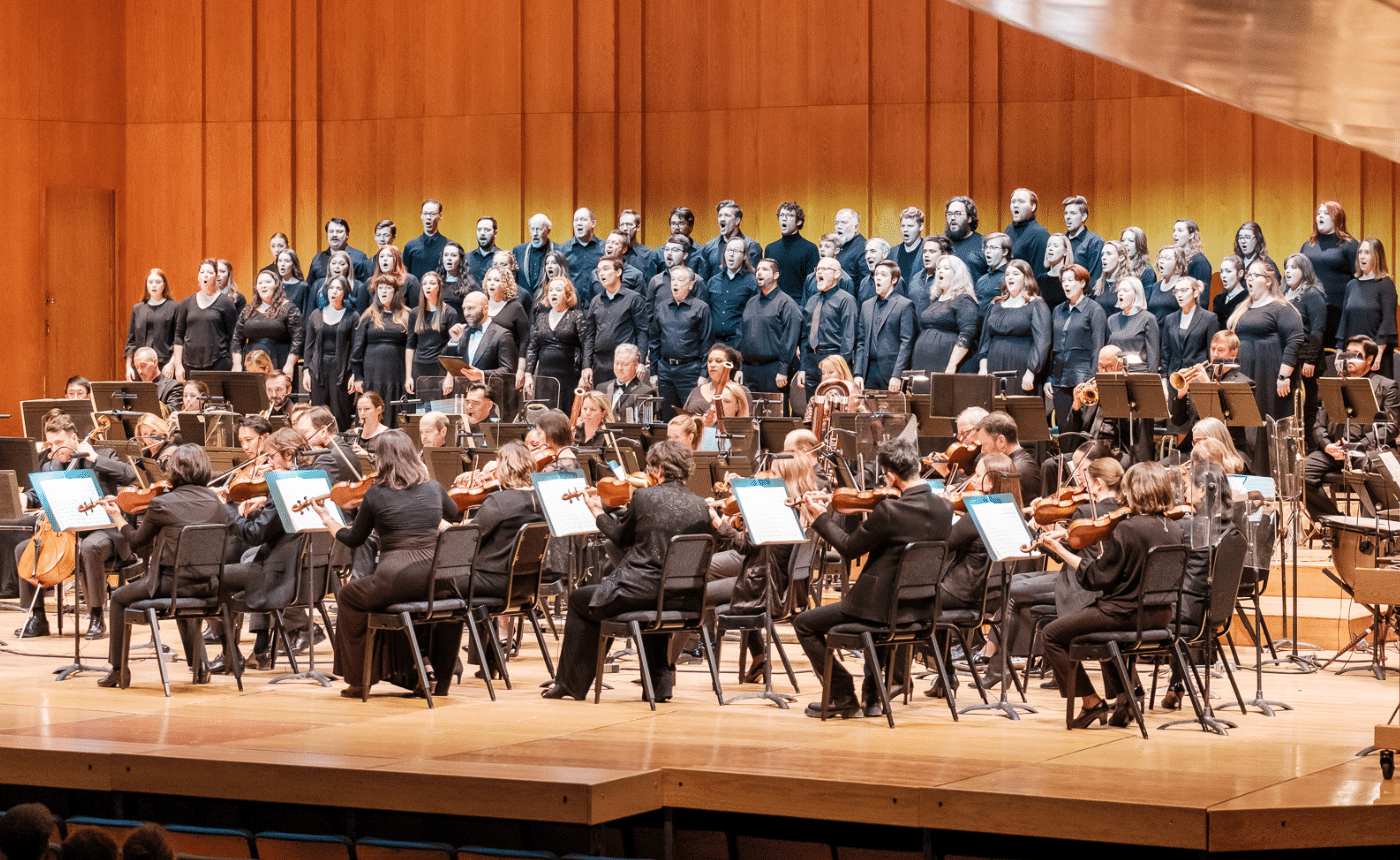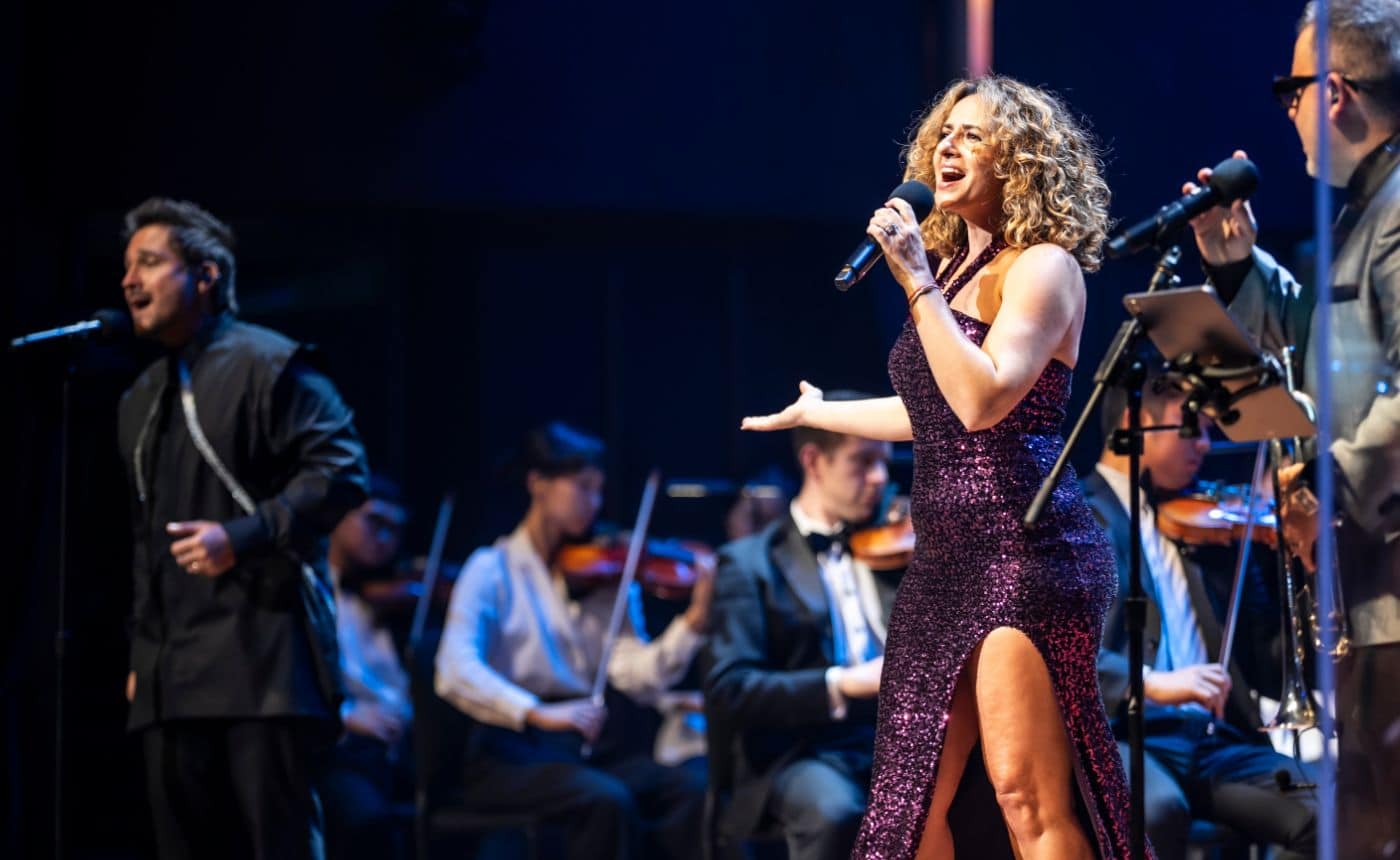Beethoven – Overture to Fidelio
Written by Michael Clive
Ludwig van Beethoven (1770 – 1827): Overture to Fidelio, Op. 72
Background
Though Beethoven composed relatively few works for the stage, he had great regard for theatrical music. But of the 30 opera librettos that were offered to him over the years, almost none received serious consideration. Fidelio, his one and only opera, arrived in the opera house only after 12 years of intermittent travail. Compare that with the output of his contemporary in Italy, the opera composer Giacchino Rossini, who – as the cultural historian John Clubbe notes – “could knock off an opera in a few weeks.” Only one other possible subject for an opera tempted Beethoven: Goethe’s Faust. And when Goethe and Beethoven, two giants of German culture, finally met – well, let’s just say the chemistry was not great.
Still, the opera proved to be a masterpiece – the opera that Gustav Mahler, a major opera conductor and director, would call “the opera.” Love, primarily but not exclusively married love, is one of its two main themes; the other is freedom from political tyranny and injustice, a concern that we see other Beethoven works, especially his Symphony No. 9. Beethoven’s ideals of romantic love, which have been the subject of speculation literally for centuries, are embodied in this opera’s story, in which the central character, Leonore, risks her own life and endures extreme hardship to rescue her unjustly imprisoned husband. Though we cannot know to what extent his depiction of Leonore was inspired by the woman he called his “Immortal Beloved,” we know that his tremendous, passionate love for her was of lasting importance to him, and that he worked toward a committed love relationship in his own life. Fidelio derives its power from his dramatic celebration of the ideals of love expressed in his famous letter to the Immortal Beloved – a letter he never sent.
The opera binds this theme of romantic love to the theme of human freedom from political tyranny. It takes place in prison, and its depiction of tortured prisoners released from their cells (by Leonore) into the light and air remains, unfortunately, quite modern. Its libretto was derived from a popular French play of 1798 by Jean-François Bouilly called Léonore, which is based, more or less, upon a true story about a wife rescuing her husband from prison during the time of the French Revolution. Léonore was a type of play pervasive at that time, known as the “rescue drama.”
What to Listen For
Some 19th-century opera overtures preview the melodies to come; others set the mood, suggest the overall nature of the drama, or provide a kind of free-standing, small-scale version of the drama to come, incorporating its own musical materials to develop a theatrical premise, conflict and resolution. Beethoven composed three versions of possible overtures for Fidelio; the other two – the “Leonore” overtures – are so intensely theatrical that they might have competed with the drama to come, especially with its relatively comic opening scene. But all three can stand as independent musical works embodying the philosophical themes of Fidelio, and they embody the textures, if not the tunes, of the opera itself.
All of the opera’s emotions are here: the gravity, the love and the yearning. The martial quality of the music, combined in a way that only Beethoven could, mobilizing the full resources of the orchestra. The overriding sonic impression is of steadfast nobility of purpose, with the suspense of a hairsbreadth rescue and a rousing, triumphant finale foreshadowing the triumph of the opera’s forces for good.











